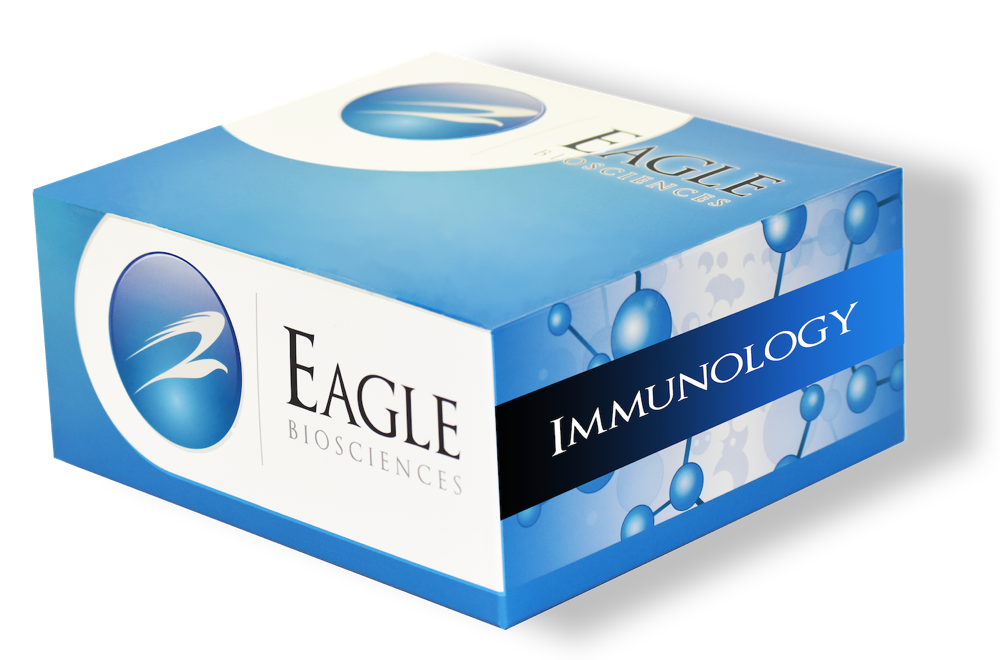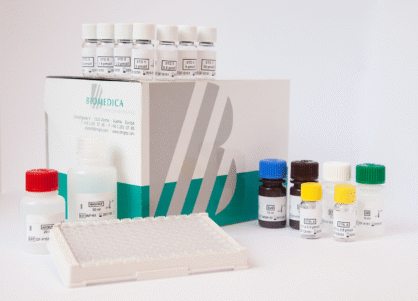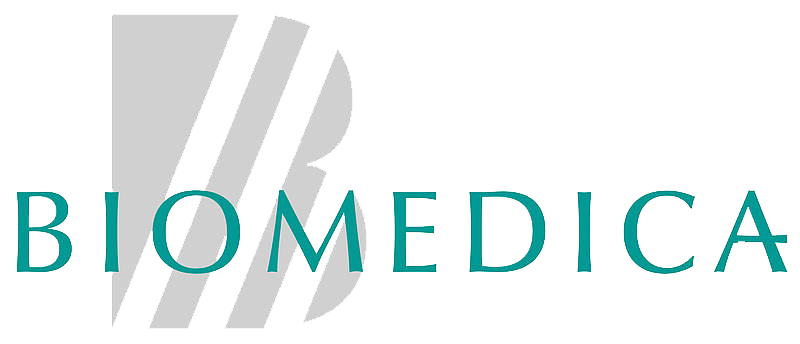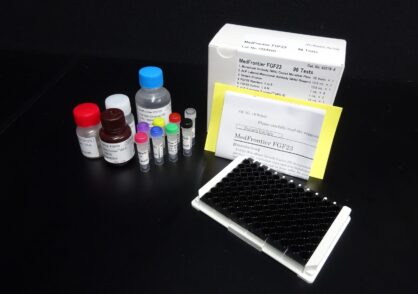Elafin (Trappin-2) ELISA Kit
Elafin is an epithelial proteinase inhibitor also known under various other names such as
Skin-derived Anti-leukoproteinase (SKALP) and Elastase-Specific Inhibitor (ESI). Elafin
belongs to the Trappin gene family and was given the systematic name Trappin-2 in a recent
classification. The Trappin family is defined by a N-terminal transglutaminase substrate
domain and a C-terminal four disulphide core. Trappins have been suggested to play a role
in the regulation of inflammation and in protection against tissue damage in stratified
epithelia. Elafin is an inhibitor of leukocyte elastase and proteinase-3 and, in addition, it is a
substrate for transglutaminases. The protein is constitutively expressed in various epithelia
including those of hair follicles, oesophagus, vagina and oral cavity. Elafin is not present in
normal human skin but is strongly induced during inflammation as in psoriasis and wound
healing. The full-length protein is translated as a 12.3 kDa protein of 117 amino acids termed
pre-Elafin or Trappin-2. Cleavage of the signal peptide yields a mature protein with a
molecular mass of 9.9 kDa. The 9.9 kDa secreted protein is the major form found in culture
medium. In skin extracts, a 6 kDa form comprising the 57 most C-terminal amino acids is
present, which is the form of Elafin originally described by Wiedow et al. In serum, both the
9.9 and the 6 kDa form appear to be present. In urine, only the short 6 kDa form is found.
The ELISA is not suitable to measure the short 6 kDa form. Elafin has been used as a
quantitative marker for disease activity in severe psoriasis during treatment with cyclosporin.
In serum/plasma of healthy individuals approximately 10-50 ng/ml Elafin is present. Elafin
shows a 10-fold increase in concentration during psoriasis. The determination of Elafine is
not disturbed by the presence of the short 6 kDa form.
This Elafin (Trappin-2) ELISA Kit is manufactured in Netherlands by Hycult Biotech.




